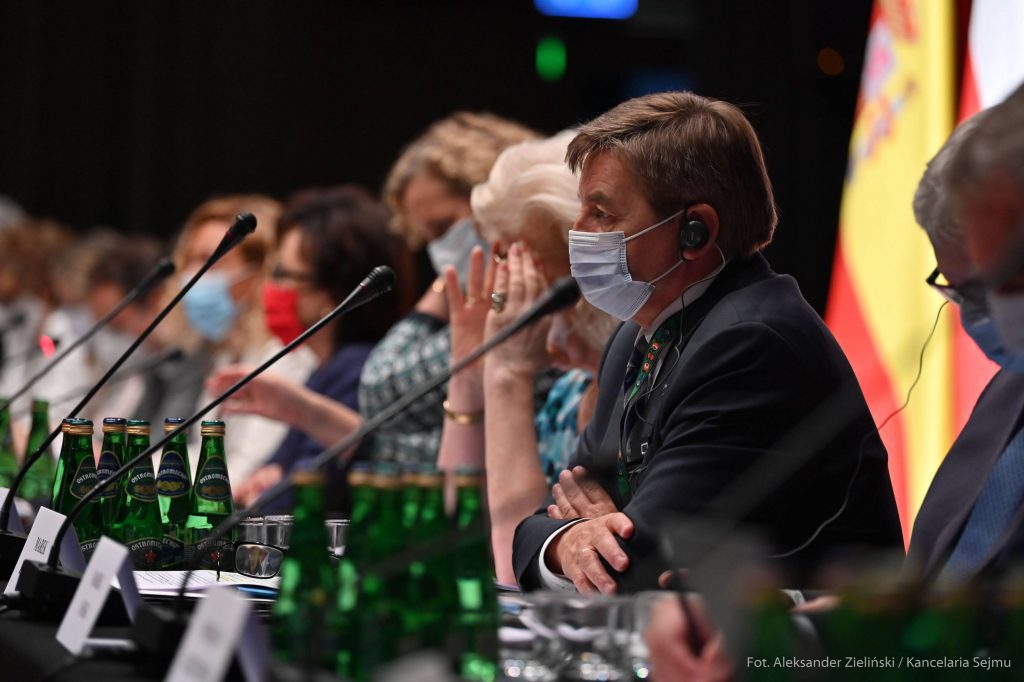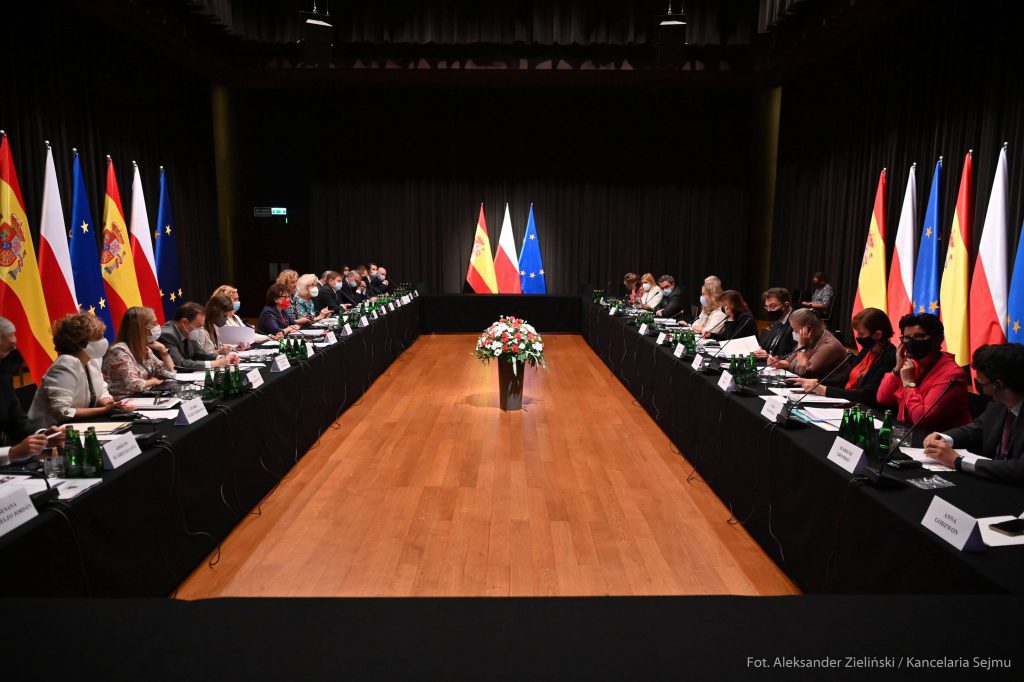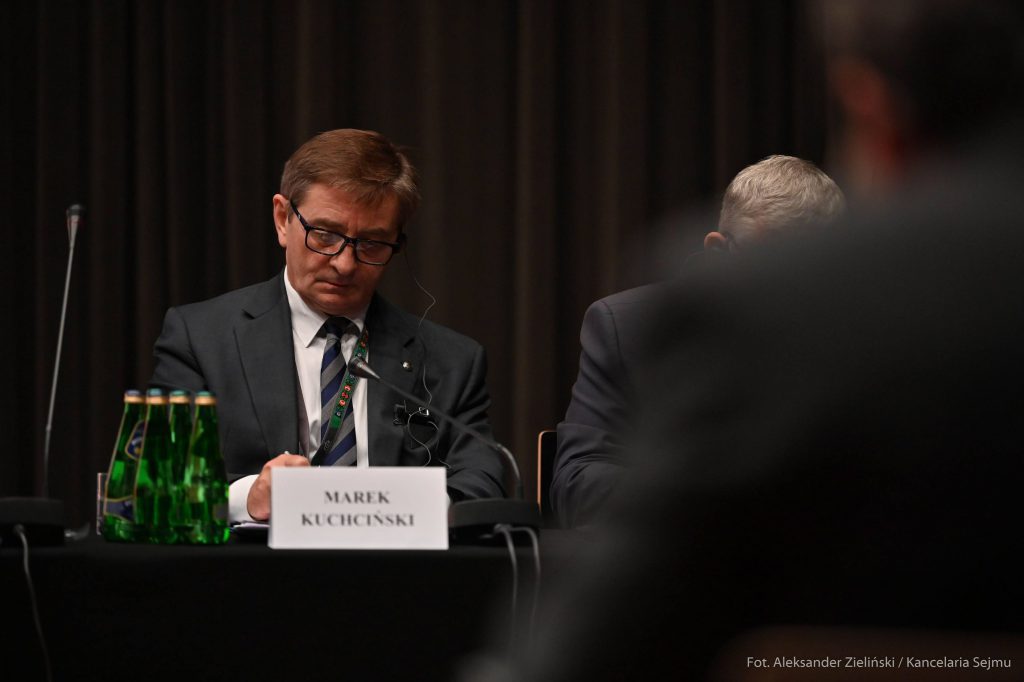For 30 years the Sejm has been involved in shaping Polish foreign policy through parliamentary diplomacy. One of the objectives of these activities is to strengthening security in this part of Europe, good cooperation with neighbors and increasing the activity of parliaments in the face of the growing importance of the executive in these countries and the increasing role of international institutions, such as the EU.

I
Interest in subregional cooperation has been growing over the past several years. This consists of several reasons.
1. sub-regions in Europe are distinct, which strengthens pluralism in the EU.
2. some issues in the EU are sub-regional and there they may be solved best, e.g:
– development of North-South transport infrastructure Europe,
– regional strategies such as: Alpine, Danube, Baltic or planned Carpathian - as instruments to strengthen and rationalize cooperation between the countries of the region,
– strengthening the eastern dimension of the European Neighbourhood Policy and cooperation with the Eastern Partnership countries.
– need to get to know each other betterbecause after the collapse of the USSR 30 years ago and Yugoslavia more than twenty countries in the region regained their independence.
Central Europe wants to use the best examples of Benelux and Nordic cooperation.
Entering the EU States voluntarily agreed to forfeit approximately 60% of their authority, and as a result their Parliaments have limited their sovereignty. This fact causes national parliaments to are looking to strengthen their role as the representative of the sovereign, the people.
(5) An example of a threat to energy security in Central European countries is the violation of European solidarity by Germany, which agrees with Russia on specific economic projects (e.g. on the Nord Stream 2 gas pipeline), which forces the national parliaments of Central Europe to react strongly in defense of sovereignty.

II
Some of the most active formats for subregional cooperation include: Visegrad Group, EUROWAW, Carpathian Europe, Tri-Croatia and the Bucharest Nine.
1/ The Visegrad Group (V4) was established February 15, 1991 year as a flexible multilateral cooperation mechanism four countries - Czech Republic, Slovakia, Hungary and Poland.
The Group's work is coordinated by rotating annual presidency, during which programs and priorities are developed.
V4 market is for Germany - the largest economy in the European Union - 40 percent higher than the U.S. market.
In 2001, he was appointed International Visegrad Fund which is based on supporting cultural, scientific, educational and tourist initiatives.
During the meetings the following are discussed joint initiatives and international activitiesincluding V4 countries have a negative view of the "multi-speed Europe" project.
2/ EUROWAW, or Central and Eastern European Parliamentary Summits.
The idea to establish this format arose from the conviction that in our part of Europe parliamentary cooperation should not be limited only to the countries of the European Union.
At East of our borders lie European countries that do not have the opportunity to develop as quickly as EU countries.
In 2008, the Eastern Partnership program was established of the EU's European Neighborhood Policy abroad, covering 6 countries. But These were government initiatives, not parliamentary initiatives.
Since 2016, the organization of the Central European Parliamentary Summits in Warsaw has created a platform for parliamentary cooperation of the entire area.
3/ Carpathian Europe - a series of international conferences, organized since 2011, by the Polish Parliament.
The participants of these conferences are Representatives of governments and parliaments, local governments, academic institutions, students, NGOs, intellectuals and creators, as well as ordinary people.
Participants talk about common heritage, politics, cooperation between states, economy and ideas of civilization, social issuesbut also about the unique cultural and natural wealth of our part of Europe
Carpathian Europe has become a popular form of parliamentary activity and of getting to know each other's needs, expectations and ways of thinking better.
In Central Europe it occurs the highest density of nations, languages, different religions per 1 square kilometer in the world - and the numerous problems associated with it, such as changing boundary lines and even neighbors. (Poland does not currently share a border with any of the countries it bordered back in 1989.)
4/ Trilateralism.
It is a collaboration of 12 EU countries, concerning infrastructure development, energy cooperation and digitization, among others. They include: Estonia, Latvia, Lithuania, Poland, Czech Republic, Slovakia, Hungary, Croatia, Slovenia, Romania, Bulgaria and Austria.
The countries have set up the Trilateral Fund, which amounts to €1.2 billion and is designed to support joint projects.
By 2030. investments in transport infrastructure in the twelve countries of the Tri-Portuguese region are to be 290 billion, while energy sector is expected to attract €88 billion, and digitalization 160 billion.
Recently, efforts have been made to create Trilateral Parliamentary Forum.
5/ The Bucharest Nine - cooperation among NATO member states, in Central Europe, which aims to increase the security of the region.
In the European Union, the debate about the dynamics of the integration process is ever present.
Today's European Union faces simultaneous institutional, political, and economic challenges. It is confronted with the effects of financial crisis, immigration crisis, Brexit, pandemic.
Against this background, good cooperation with our closest neighbors is even more important. Those who are EU members, those who aspire to membership, or those who simply wish to maintain good relations with the Union.



